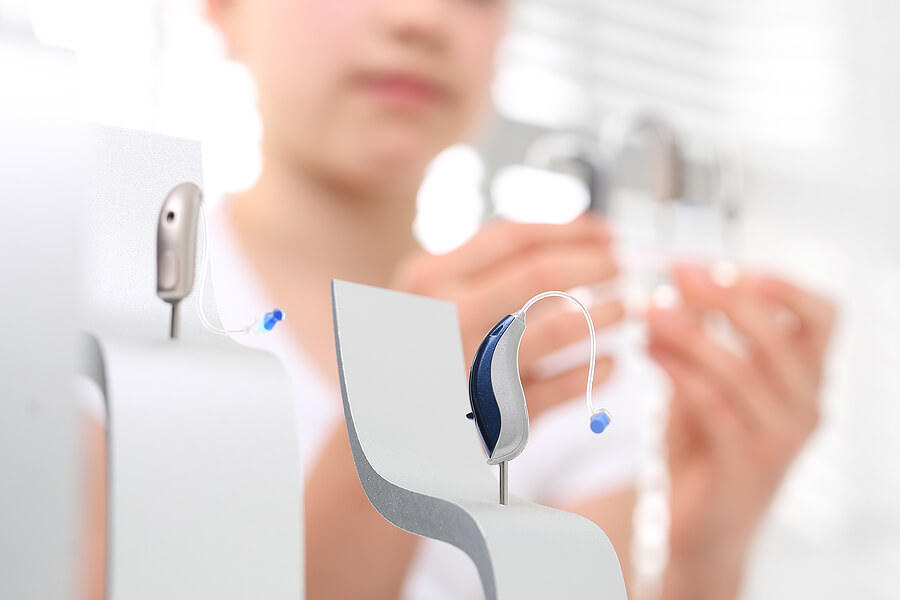
Hearing aids have the power to transform your life and connect with the world around you. Hearing aids are remarkable pieces of technology, but they are not immune to wear and tear. To ensure that your hearing aids continue to provide you with clear, crisp sound and enhanced communication, here are some essential tips for proper hearing aid maintenance.
Keep It Clean
Over time, the exterior of your hearing aids can accumulate dust, dirt, and earwax. To maintain your hearing aids, make cleaning a regular part of your daily routine. Use a soft, dry cloth to gently wipe down the exterior of your hearing aid. Avoid using alcohol or any harsh chemicals, as they can damage the delicate components. For deeper cleaning, you can use a small brush or a wax removal tool provided by your audiologist.
Beware Of Moisture
Hearing aids and moisture don’t mix well. Excessive moisture can lead to corrosion and damage. So make sure you remove your hearing aids before showering, swimming, or engaging in any water-related activities. If you’re often out in the rain you may want to get hearing aid covers to keep your devices safe and dry. For the best sound quality, store your devices in a dry, cool place overnight to prevent condensation from forming.
Investing in a hearing aid dehumidifier can be a game-changer if you live in a humid climate. These hearing aid driers can help absorb moisture and keep your devices in top-notch condition.
Change The Batteries on Time
Most hearing aids rely on batteries to function, and it’s essential to change them regularly. Keep an eye on your hearing aid’s battery life and replace it as soon as you notice a decline in performance.
Pro tip: To avoid any inconvenience, keep spare batteries with you, especially when you’re out and about. There’s nothing worse than your hearing aid batteries dying in the middle of an important conversation.
Handle With Care
Your hearing aids might be small, but they are packed with advanced technology. Treat them with the care they deserve. When handling your hearing aids, do it over a soft surface to avoid accidental drops. You can place a soft cloth on the counter and avoid holding your devices over the floor. It’s a good habit to use a soft grip and avoid applying excessive force when inserting or removing them from your ears.
Protect Your Hearing Aids from Extreme Conditions
Extreme temperatures, whether hot or cold, can affect the performance and lifespan of your hearing aids. Avoid leaving them in your car on a scorching summer day or in freezing temperatures during the winter. Extreme conditions can damage the delicate components, so always store them in a moderate environment.
Stay Informed About Technological Updates
Just like any other technology, hearing aids continue to evolve. Stay informed about software updates and new features that could enhance your hearing experience. Your audiologist can guide you through these updates and help you make the most of your devices.
Practice Good Ear Health
While hearing aids are incredible tools, they shouldn’t be a substitute for overall ear health. Make sure you’re taking care of your ears by keeping them clean and dry. If you suspect an ear infection or any discomfort, consult your healthcare provider promptly. You should also prioritize wearing hearing protection if you’re ever in places with a lot of noise.
Regular Check-ups with Your Audiologist
Regular check-ups are crucial to ensure that your devices are functioning correctly. Your audiologist can also make any necessary adjustments to improve your hearing experience. Remember that your hearing needs can change over time, and adjustments to your hearing aids can make a significant difference in your quality of life. Finally, adjusting to hearing aids can take some time, and it’s normal to face challenges along the way. Be patient with yourself, and don’t hesitate to seek support when you need it.
Your hearing aids are more than just devices – they are your gateway to a world of sounds and meaningful conversations. By following these tips for proper hearing aid maintenance, you can ensure that your hearing aids continue to serve you well for years to come.
